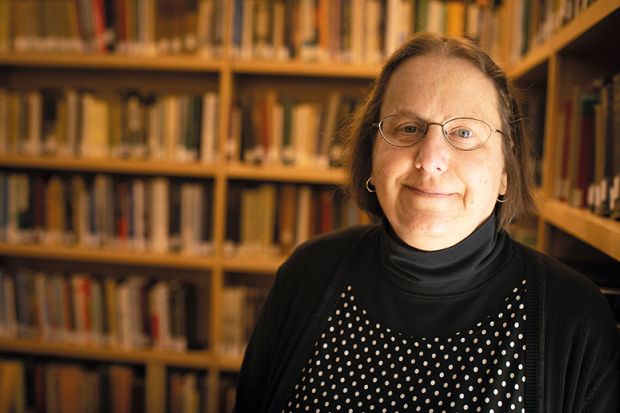A leading authority on Indian religion has been praised as a “unique and remarkable teacher”, following her death.
Anne Monius was born in New Hampshire on 17 February 1964, the daughter of a farming family. At the age of eight, she had a transformational experience when she visited Harvard University’s Museum of Comparative Zoology on a school trip and got talking to an art student who was sketching the stuffed animals. “It was like I had been living in a broom closet, and somebody opened up the door,” she said in an interview earlier this year. When she got home, she announced that she wanted to study at Harvard.
Although her mother was unimpressed by this announcement, Professor Monius performed brilliantly at high school and did indeed secure a place at Harvard to study theoretical astrophysics. As part of the core curriculum, however, she took a course on “Sources of Indian Civilization” and decided to switch to South Asian religions, which she believed shared with astrophysics a focus on “the big questions about the meaning of life”.
After completing her first degree in 1986, Professor Monius continued at Harvard for a PhD (1997) which was eventually published as Imagining a Place for Buddhism: Literary Culture and Religious Community in Tamil-Speaking South India (2001). Her research involved two years based in Chennai, India to work on the only surviving Buddhist texts written in Tamil. Her farming background proved very helpful in establishing rapport with the Dalit populations of small villages.
After five years teaching in the department of religious studies at the University of Virginia (1997-2002), Professor Monius joined the Harvard Divinity School as assistant professor of South Asian religions. She was promoted to full professor in 2004 and later served as the acting director of the Center for the Study of World Religions (2013-14).
In a tribute produced by the HDS, Charles Hallisey, the Yehan Numata senior lecturer on Buddhist literatures, described Professor Monius as “a unique and remarkable teacher, exemplary in her generosity to her students” as well as “a scholar of great intelligence and erudition [who was] always filled with surprises, such as her learned passion for Bob Marley’s music”.
“Anne’s laughter was one of the great sounds of this world,” added Dr Hallisey. “Just to hear her easy laugh made you want to rush to wherever she was.”
Professor Monius, who died on 3 August, had been at work on a book to be titled Singing the Lives of Śiva’s Saints: History, Aesthetics, and Religious Identity in Tamil-speaking South India.
